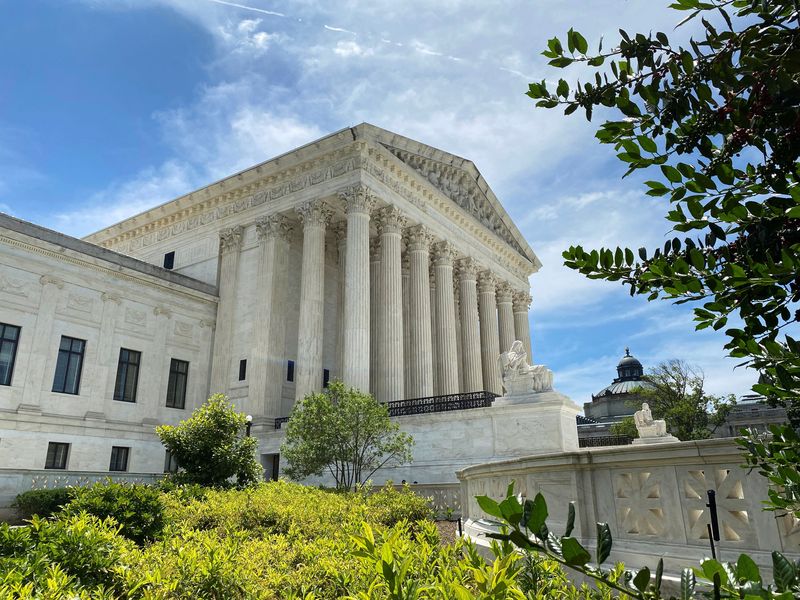By Jonathan Stempel
(Reuters) -The U.S. Supreme Court declined on Monday to hear a bid by Sberbank, Russia’s largest bank, to avoid a lawsuit brought under an American anti-terrorism law alleging that it did business with a group blamed for downing a Malaysia Airlines jetliner over Ukraine in 2014.
The justices turned away Sberbank’s appeal of a lower court’s ruling letting the family of Quinn Schansman, an 18-year-old American passenger who was killed in the crash, sue the state-controlled lender.
Schansman’s family sued under the Anti-Terrorism Act, which lets U.S. nationals injured by an “act of international terrorism” seek damages in private civil lawsuits.
In February, the New York-based 2nd U.S. Circuit Court of Appeals decided that Sberbank was not entitled to sovereign immunity against claims it used the U.S. banking system to funnel donor money to Donetsk People’s Republic, or DPR, a Russia-backed separatist group.
Malaysia Airlines Flight MH17 to Kuala Lumpur from Amsterdam was shot down by a surface-to-air missile on July 17, 2014, over DPR-controlled territory in eastern Ukraine.
All 298 people on board were killed including Schansman, who was traveling for a planned family vacation.
The Russian government has denied involvement. Ukraine had previously declared the DPR a terrorist organization, and the United States had imposed sanctions on the group.
Russia’s Ministry of Finance acquired a majority stake in Sberbank in 2020.
Sberbank said it deserved a presumption of immunity as a “foreign state” under the Foreign Sovereign Immunities Act.
It said the 2nd Circuit erred by finding it engaged in commercial activity, triggering an exception to immunity.
The bank called that outcome “especially problematic in an increasingly fraught diplomatic environment” in which the United States and other countries that are “not commonly considered to be the proverbial ‘black hats’ nevertheless support non-state actors.”
Sberbank said allowing lawsuits such as the one by the Schansman family could provoke retaliation by other countries, and even expose the United States to liability under the Anti-Terrorism Act for activities by “militant groups” it supports.
In asking the Supreme Court to reject the appeal, lawyers for the Schansmans said there was no confusion among lower courts about the scope of the commercial activity exception. They also said Sberbank was not a “foreign state” under the Anti-Terrorism Act to begin with.
(Reporting by Jonathan Stempel in New York; Editing by Will Dunham)

